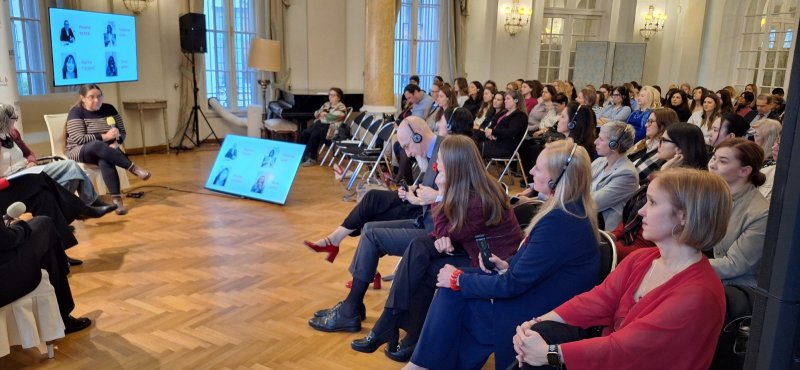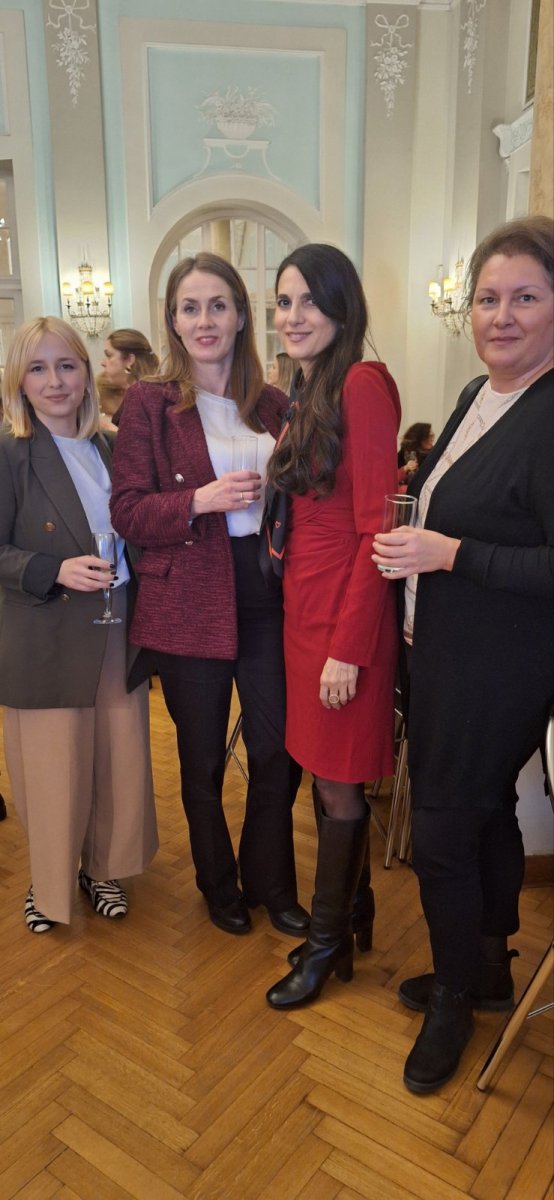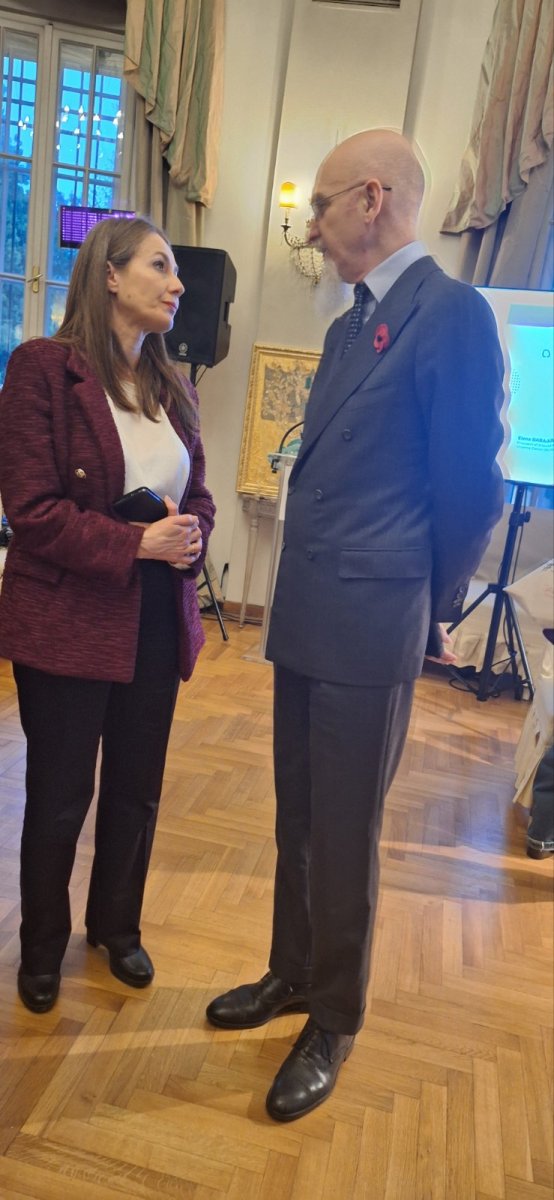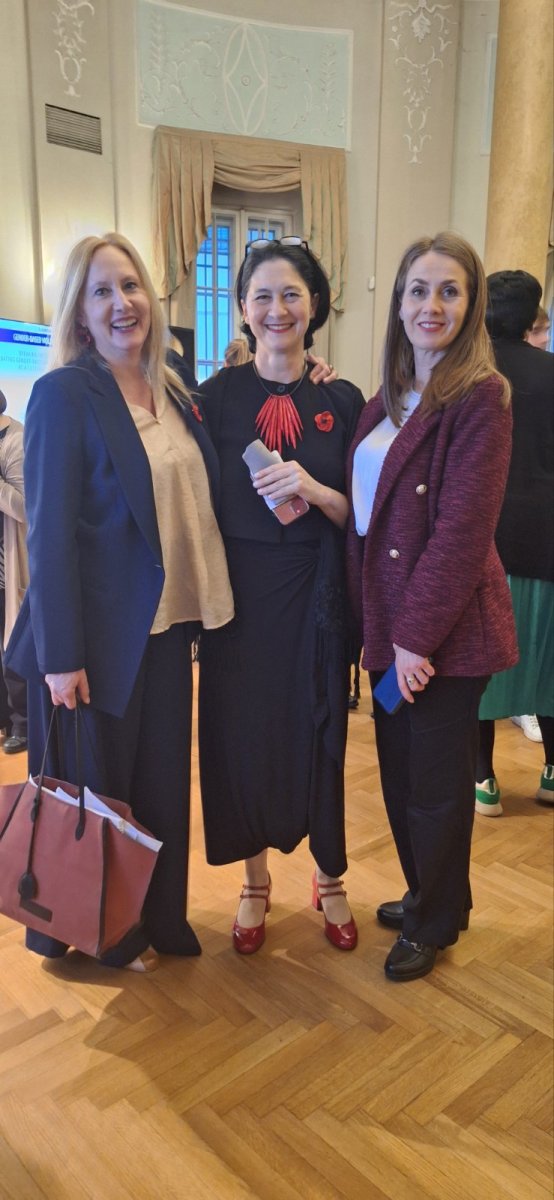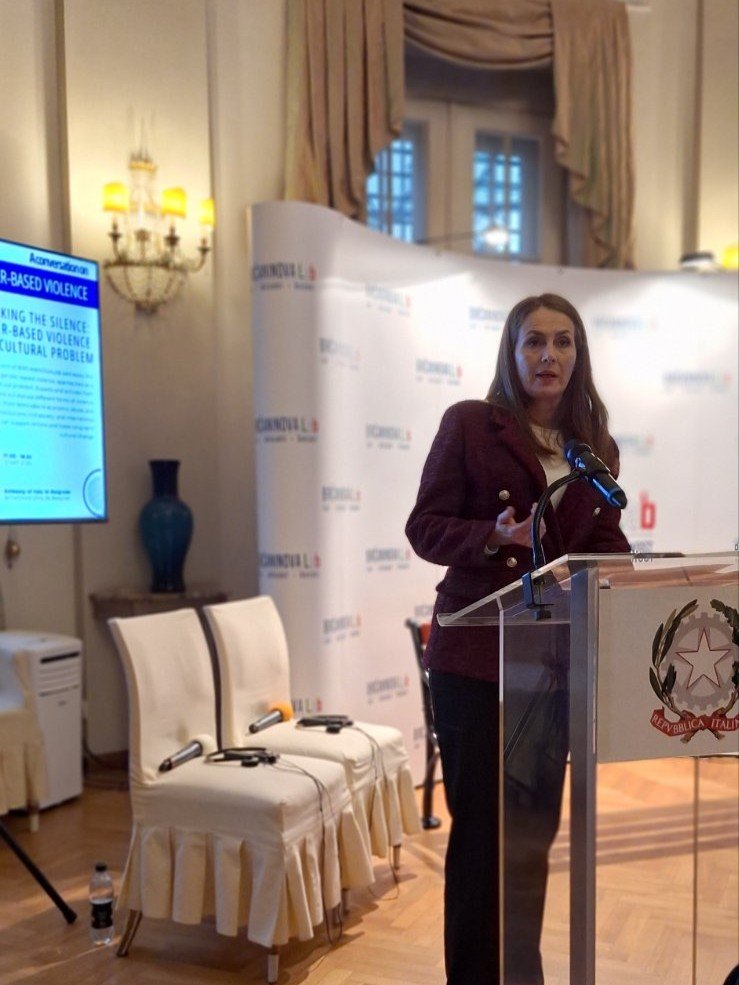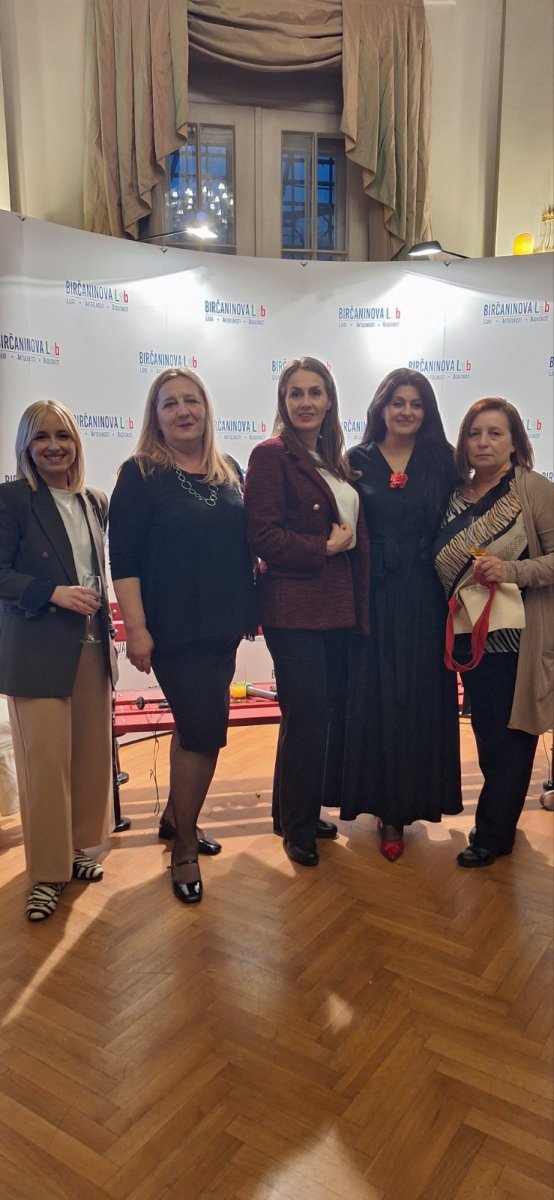Language is a fundamental element of culture and a reflection of accepted patriarchal attitudes, where women are referred to as the “fairer” and “weaker” sex, and the path from such “compliments” to gender-based violence can be very short. Language and reality mutually shape each other, which is why it is important how we use language — it can encourage discrimination but also serve as a powerful tool for achieving equality, said the Commissioner for the Protection of Equality, Brankica Janković, at the opening of the event “Breaking the Silence: Combating Gender-Based Violence as a Cultural Issue,” held at the residence of the Italian Ambassador in Belgrade, Luca Gori, organized by BirčaninovaLab.
Movies, TV shows and series, newspaper front pages, as well as social media, are flooded with portrayals of violence against women and their marginalization, clearly demonstrating that the dominant patriarchal value system continues to use all available mechanisms and practices to reinforce “proper” beliefs about the role and place of women in society, pushing them aside and discouraging them, stated Janković.
The organizer and host of the event was Eugenia Gresta, founder of BirčaninovaLab, who delivered the welcoming speech. Also speaking at the opening were Milana Rikanović, Director of UN Women in Serbia, and Elena Baragli, President of the Artemisia Anti-Violence Center from Florence. Experts from organizations including Femplatz, the Women’s Rights Center from Užice, and the Artemisia Center discussed various forms of violence against women — from femicide to economic subordination — as well as gender-based violence as a deeply rooted cultural problem. They exchanged experiences and shared ideas on how institutions and civil society organizations, through international cooperation, can provide necessary and timely assistance to victims and contribute to the long-term transformation of cultural patterns.
